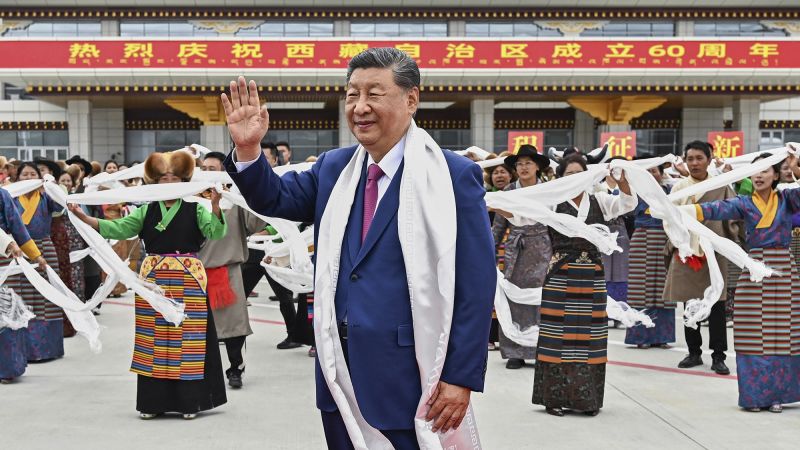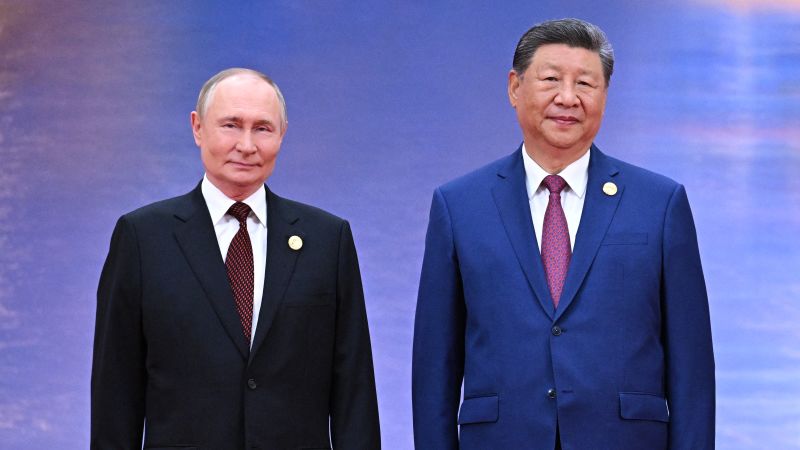
Chinese President Xi Jinping's Unusual Visit to Tibet Signals Beijing's Authority
Politics | 8/21/2025
Chinese President Xi Jinping has embarked on a highly unusual visit to Tibet, emphasizing Beijing’s firm grip on the historically restive region. During his trip, Xi praised the quashing of “separatist” forces in Tibet, underscoring China’s resolve in maintaining control over the area. This visit comes amidst growing speculation surrounding the succession of the Dalai Lama, who is both aged and living in exile, adding a complex layer to the situation as Beijing vies for influence over Tibetans.
Xi Jinping’s presence in Tibet marks a significant display of authority, signaling China’s strategic focus on asserting its dominance in the region. The timing of this visit is crucial, as it coincides with the impending challenge of determining the next spiritual leader for Tibetan Buddhists. The Dalai Lama, a key figure in Tibetan Buddhism, continues to reside outside China, posing a dilemma for Beijing in managing his succession in a manner favorable to its interests.
The Chinese government’s narrative of combating separatism in Tibet aligns with Xi’s messaging during his visit, reinforcing the state’s narrative of maintaining stability and unity in the region. Through Xi’s public statements and gestures in Tibet, China aims to showcase its control and authority over a territory that has a history of seeking greater autonomy. This visit underscores China’s commitment to quelling dissent and consolidating power in sensitive areas like Tibet.
While Xi Jinping’s rare visit to Tibet symbolizes China’s assertiveness and strategic objectives in the region, it also highlights the complexities surrounding the Dalai Lama’s succession and the delicate balance Beijing must strike in managing Tibetan affairs. As China navigates the intricacies of Tibetan politics and the spiritual lineage of the Dalai Lama, Xi’s presence in Tibet serves as a potent symbol of Beijing’s determination to shape the region’s future in line with its interests. The implications of Xi’s visit reverberate beyond Tibet, resonating with broader geopolitical dynamics and China’s evolving approach to minority groups within its borders.


